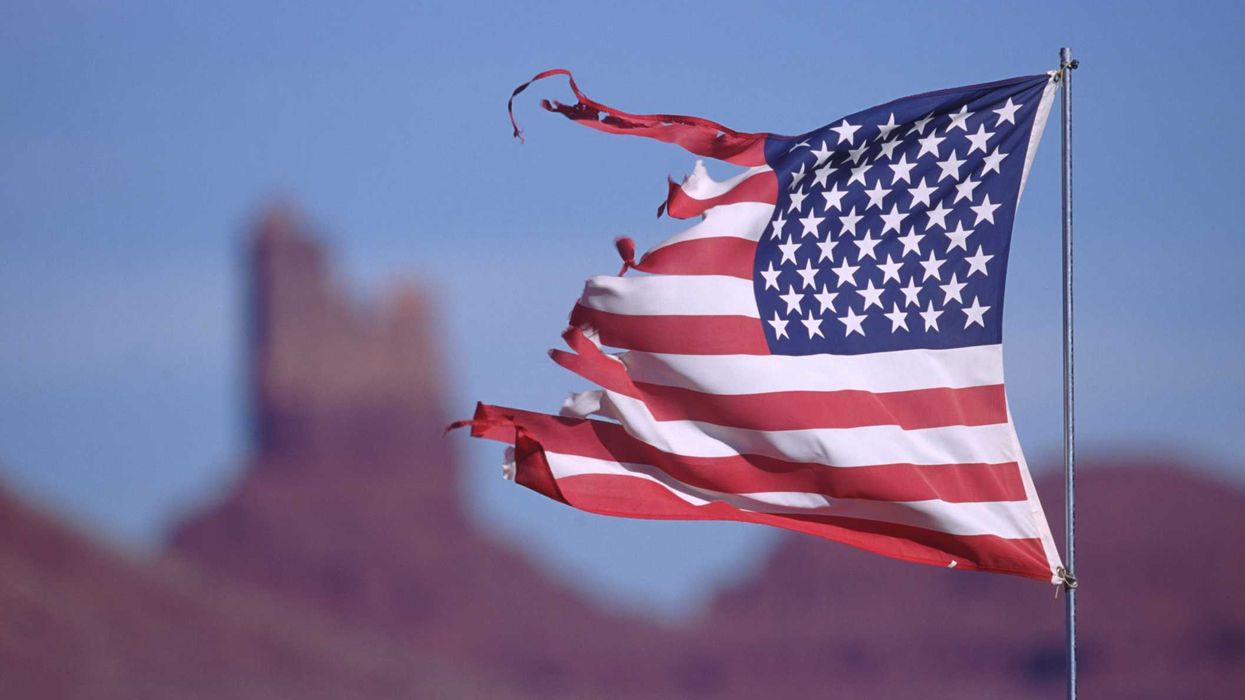In 1968, amid riots and assassinations, a magazine asked leading intellectuals why America was so violent. Among the responses was one that stood out—H. Rap Brown’s now-infamous line: “Violence is as American as cherry pie.”
Anthropologist Clifford Geertz dismissed the phrase as a cliché. But sociologist St. Clair Drake took it seriously. “However repulsive and shocking,” Drake wrote, Brown was “telling it like it is.” Americans, he said, must face the fact that their society is, by global standards, a very violent one.
That was April 1968. Martin Luther King Jr. had just been assassinated. Bobby Kennedy would be killed two months later. The decade had already seen the violent deaths of Medgar Evers, John F. Kennedy, Malcolm X, and even George Lincoln Rockwell, leader of the American Nazi Party.
Today, as we process the murder of right-wing activist Charlie Kirk—which Utah Gov. Spencer Cox called a “political assassination”—Drake’s words feel as relevant as ever.
This killing didn’t happen in a vacuum. It joins a long and disturbing list: the plot to kidnap Michigan’s governor, the arson attack on Pennsylvania’s, the fatal shooting of a Minnesota state lawmaker and her husband, assassination attempts against Donald Trump, the brutal assault on Nancy Pelosi’s husband, and the recent murders of two Israeli staffers in D.C. and the UnitedHealth CEO.
This isn’t just polarization. It’s something deeper.
Yes, the rhetoric has gotten more toxic. Leaders on both the right and left blame each other. In his remarks after Kirk’s death, President Trump pointed to the “radical left.” Others blame social media, conspiracy theories, or partisan cable news. Those things matter.
But we can’t ignore the broader context: In America, violence has often been used as a tool for political change—not just by extremists, but by everyday people who’ve felt ignored or powerless.
That was Drake’s main point. Violence, he said, is often “a direct or indirect force for changing the status quo.” It’s what happens when people believe the system isn’t listening. This isn’t an excuse. It’s a warning.
A few months after Drake wrote those words, the National Commission on the Causes and Prevention of Violence released a 350,000-word report. One of its key findings? That nearly every group in American history has used violence—either to protect themselves or to push for change. We’ve seen this play out time and again.
H. Rap Brown himself started in the nonviolent civil rights movement. He led the Student Nonviolent Coordinating Committee (SNCC). But over time, he lost faith in peaceful protest. He aligned with the Black Panther and declared that nonviolence in the face of injustice was not just ineffective, but immoral.
“Violence is necessary,” he said. “It’s part of America’s culture.”
The Black Panthers embraced militant self-defense. Their Ten-Point Program ended with a quote from the Declaration of Independence—the same one America’s Founders used to justify a revolution: “It is their right, it is their duty, to throw off such government.”
It’s uncomfortable, but it’s true: Our country was born in political violence. And to this day, many Americans still believe it’s a legitimate response when they feel all other options have failed. We can't rewrite history, but we can learn from it.
We’ll never eliminate political violence by just condemning it after the fact. We have to make the system more responsive. The Founders deliberately made change hard—to protect against mob rule. But in doing so, they also made it easier for people to feel shut out.
Our challenge today is to protect liberty while making government work better for more people. That means strengthening voting rights, restoring faith in institutions, and creating real, peaceful avenues for change.
If we want to break the cycle, we need to make sure ballots always feel more powerful than bullets. That’s how we move forward—and how we ensure our democracy survives the next 250 years.
Jeanne Sheehan Zaino is a professor of political science at Iona University, a democracy visiting fellow at the Harvard Kennedy Schools' Ash Center for Democratic Governance and Innovation, senior democracy fellow at the Center for the Study of the Presidency & Congress, & a Bloomberg News political contributor.



















